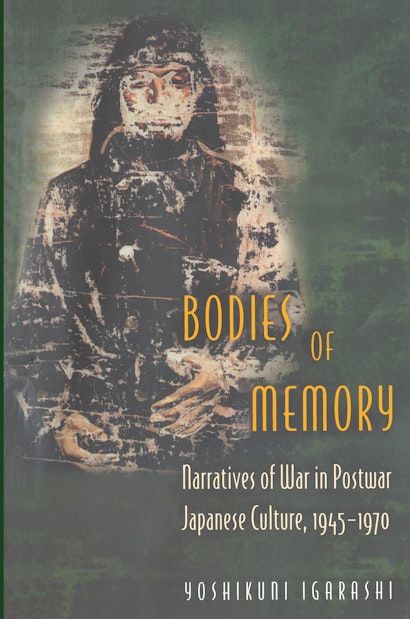Bodies of Memory: Narratives of War in Postwar Japanese Culture, 1945-1970


Paperback
ebook
- Sale Price:
- $23.80/£19.60
- Price:
-
$34.00/£28.00 - ISBN:
- Published:
- Jan 9, 2012
- Copyright:
- 2000
- 13 halftones
- Main_subject:
- History
30% off with code PUP30
Japan and the United States became close political allies so quickly after the end of World War II, that it seemed as though the two countries had easily forgotten the war they had fought. Here Yoshikuni Igarashi offers a provocative look at how Japanese postwar society struggled to understand its war loss and the resulting national trauma, even as forces within the society sought to suppress these memories. Igarashi argues that Japan’s nationhood survived the war’s destruction in part through a popular culture that expressed memories of loss and devastation more readily than political discourse ever could. He shows how the desire to represent the past motivated Japan’s cultural productions in the first twenty-five years of the postwar period.
Japanese war experiences were often described through narrative devices that downplayed the war’s disruptive effects on Japan’s history. Rather than treat these narratives as obstacles to historical inquiry, Igarashi reads them along with counter-narratives that attempted to register the original impact of the war. He traces the tensions between remembering and forgetting by focusing on the body as the central site for Japan’s production of the past. This approach leads to fascinating discussions of such diverse topics as the use of the atomic bomb, hygiene policies under the U.S. occupation, the monstrous body of Godzilla, the first Western professional wrestling matches in Japan, the transformation of Tokyo and the athletic body for the 1964 Tokyo Olympics, and the writer Yukio Mishima’s dramatic suicide, while providing a fresh critical perspective on the war legacy of Japan.